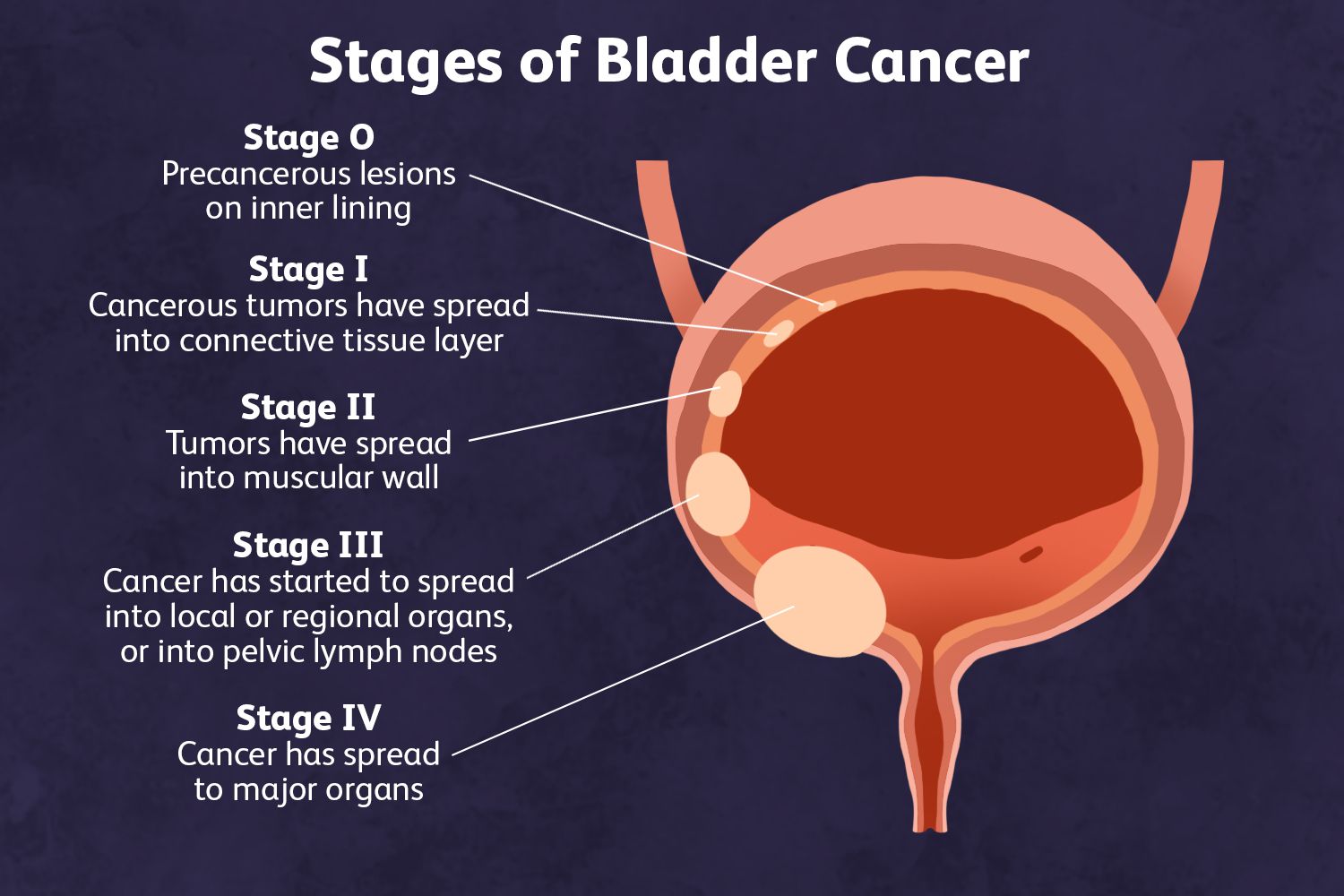Let’s raise awareness, support, and hope for those on the journey to healing💙🎗️
Bladder cancer
Bladder cancer is a type of cancer that begins in the cells of the bladder, which is a hollow organ in the pelvis responsible for storing urine. Most bladder cancers start in the urothelial cells that line the inside of the bladder. However, other types of cells in the bladder can also give rise to cancer.
What are the Risks of Bladder cancer?
Bladder cancer risk factors are various factors that may increase the likelihood of developing bladder cancer. Here are some common risk factors associated with bladder cancer:
⦁ Gender:
Men are more likely than women to develop bladder cancer.
⦁ Smoking:
Cigarette smokers have a higher risk of developing bladder cancer compared to non-smokers. Smoking is one of the most significant risk factors.
⦁ Chronic Bladder Inflammation:
Chronic bladder inflammation or infections may increase the risk of bladder cancer.
⦁ Personal or Family History:
Individuals with a personal history of bladder cancer or a family history of the disease may have an increased risk.
⦁ Genetic Factors:
Some genetic factors and hereditary conditions may contribute to an elevated risk of bladder cancer.
Regular medical check-ups, lifestyle modifications, and avoiding exposure to known risk factors can help reduce the risk of bladder cancer. If someone has concerns about their risk, they should consult with a healthcare professional for personalized guidance.
When Noticing Bladder Cancer, the First Step Is to Seek Medical Attention
If someone suspects they may have bladder cancer, the initial step is to promptly seek medical attention. This involves scheduling an appointment with a primary care physician or a urologist, providing a detailed medical history, undergoing a physical examination and, if necessary, a pelvic examination.
Clear communication about symptoms such as hematuria, frequent urination, or pain during urination is crucial. Following this, the healthcare provider may recommend diagnostic tests like urine tests, imaging studies, or cystoscopy. If abnormalities are found, a biopsy may be performed to confirm the presence of cancerous cells. Based on the results, the individual may be referred to a specialist for further evaluation and treatment planning, which may involve surgery, chemotherapy, immunotherapy, or radiation therapy.
Emotional support from friends, family, or support groups is essential as coping with a cancer diagnosis can be challenging. Seeking professional counseling services, available in many healthcare facilities, can further assist in dealing with the emotional aspects of the situation. Early detection and timely medical intervention are critical for achieving better outcomes in the treatment of bladder cancer.
What are the symptoms of bladder cancer?
⦁ Blood in the Urine (Hematuria):
One of the most common symptoms, blood in the urine can give it a pink, orange, or dark red color.
⦁ Changes in Urinary Habits:
Changes such as increased frequency of urination, urgency to urinate, or difficulty in urination may occur.
⦁ Pelvic Pain or Painful Urination:
Pain or discomfort in the pelvic area and pain during urination may be experienced.
⦁ Back or Abdominal Pain:
Pain in the lower back or abdomen, particularly if the cancer has spread to surrounding tissues.
⦁ Fatigue:
Feeling tired or weak, which may be a result of the body’s response to the cancer.
⦁ Weight Loss:
Unexplained weight loss can be a symptom of advanced bladder cancer.
It’s important to note that these symptoms can also be indicative of other conditions, and the presence of these symptoms does not necessarily mean a person has bladder cancer. However, if someone experiences persistent or concerning symptoms, it is crucial to seek prompt medical attention for a thorough evaluation and diagnosis. Early detection and treatment can significantly improve outcomes for individuals with bladder cancer.


Leave a Reply
Want to join the discussion?Feel free to contribute!